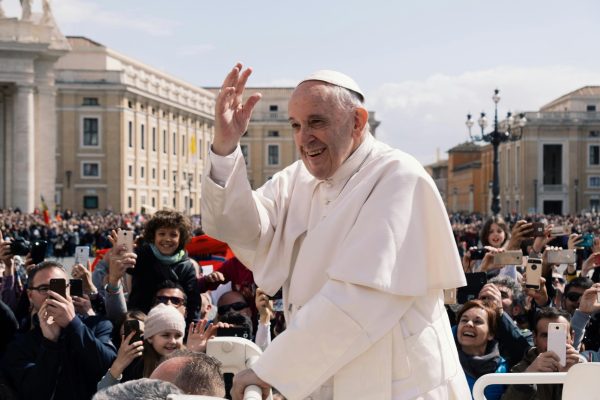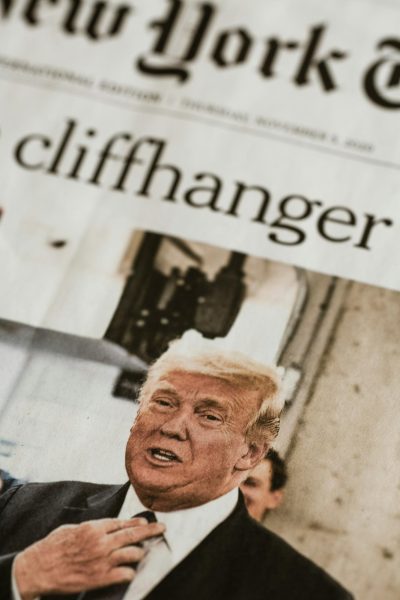World Outside of Wilmington: Silent genocide of the Congo
The African continent has always been both romanticized and ridiculed by the West since Europeans first became aware of its existence. Seeking out a land so abundant in wildlife and far from Western walls, Africa has always been painted out to be a mysterious motherland, out of touch from the remaining world.
In the same brush stroke, however, the West has managed to paint Africa as a savage homeland for the dark-skinned man. Lifting themselves onto a pedestal, Western leaders quickly deemed Africans as the unjust man, waiting to be tamed and exposed to “great civilization” and Christianity.
Colonization struck almost the entire continent of Africa, and it was conquered by many great, imperialist powers like Britain, Germany, France, Spain and more notoriously known, Belgium. The various self-interested powers were solely in Africa to claim both territory and resources and to reap the fruits of labor by the African people.
The overwhelming fascination and desire to conquer Africa led to an entire conference that would work to regulate the colonization of African land. The Berlin Conference gave many countries a green light for pursuing their colonization by whatever means, and it also laid out a foundation of corruption led by European powers that would linger over Africa until this day.
Aside from many countries’ general understanding of colonization, cases such as the Belgians’ invasion of the Congo marked a dark point in history for both the perpetrator and state of the Congo itself. The European powers’ imperialistic mindset was fully misguided and in the end led to the corruption and devastation of an entire state by means of their own personal wealth and prestigious gains.
King Leopold II, the man in charge of this barbaric genocide and exploitation, took control over the Congo in 1885 and kept his presence in the state until 1908. His task was to harvest ivory and rubber from the Congo, using the Africans as labor and brutally torturing, murdering and terrorizing them when they were incompliant.
Leopold is considered to have made other European powers believe his work was beneficial to society as he made a point to emphasize his “manifest destiny” agenda. However, after many reports of death, torture, mysterious suicides and multiple resigning officers under his regime, the international community began to question his means of colonization.
And although all forms of colonization are exploitative and imperialistic by nature, many European powers began to take note of his explicit, brutal reports of administration. Leopold, after noticing the array of negative, investigative attention he was receiving, ordered his files to be burned and destroyed. With this, of course, historians and human rights activists left empty handed when compiling a case against the old king.
Belgium, which has all other remaining files and reports from Leopold under top-security and restrictions from viewing, has remained rather quiet of their atrocities. Statues of Leopold remain standing and politicians and leaders have only spoken out against the king when they are left with no other option.
The assassination in 1961 of the Congo’s first prime minister, Patrice Lumumba, was continuously linked back to the Belgians’ responsibility for his death. Motivated by the desire to continue controlling the Congo’s resources, Belgium participated in Lumumba’s removal.
If it weren’t for a parliamentary commission investigating their role in Lumumba’s death, Belgium would have never been directly linked to the evidence. Left with no other option but to apologize for the crime, Belgium administered an apology for completing and covering up the murder, according to The New York Times.
Sadly, the Belgians continue their dismissal of the genocide and exploitation of the Congo, whether it is for the king’s namesake or the state’s reputation. On other terms, however, the Congo is still living in resilience.
As a state that is in a constant state of exploitation from their corrupt government and the West, the people have not given up on their day-to-day life and pride. Even after continuous systematic global oppression, the Congolese and those from many other African nations continue to pick themselves up and carry on. It is remarkable to see a state of people continue without much help from those on their side.
Little can be done alone, however, the people of Congo can bring about awareness and change since they do not have the means of putting together a platform themselves on both a state and international level. This now leaves it in the hands of global leaders to speak up on their behalf.










